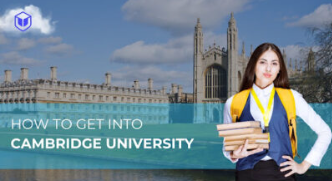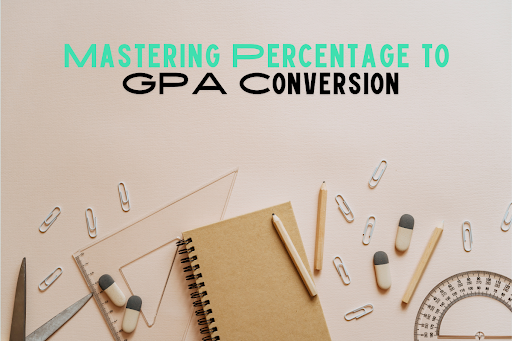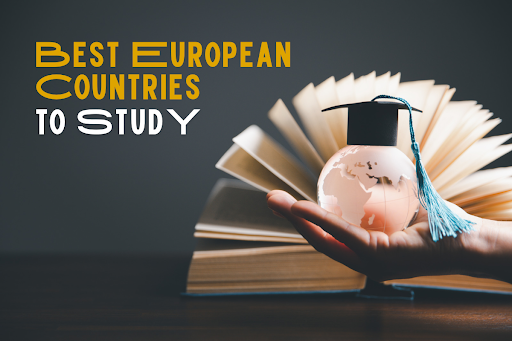Applying to Cambridge University is not just about aiming for a top-tier education — it’s about joining a global community of excellence. Known worldwide for its academic prestige, Cambridge has produced over 121 Nobel laureates, including Ernest Rutherford, Niels Bohr, Richard Henderson, and countless influential leaders across various fields.
Established in 1202 in the UK, the University of Cambridge is the fifth-oldest university in the world. The university’s reputation for advanced research and academic rigour sets it apart, making it a catch for ambitious students like you.

Excel in IELTS with India’s Top Online Coaching
Leap has helped more than 1 Lakh students achieve 7+ IELTS band.
With world-class facilities and an environment that houses innovation and critical thinking, Cambridge University has over 9,000 international students from across 140 countries. What’s more? About 25% of undergraduate and more than 50% of postgraduate students hail from outside the United Kingdom.
So, suppose you have been googling the details about Cambridge University admission requirements for Indian students. In that case, you are not alone – many students before you have done it and successfully made their way into this dream university. And so can you. All you need is detailed guidance on getting into this university. That’s precisely what this blog post aims to help you with.
So, ready to learn how to get into Cambridge University? Dive in for all details.
Key Highlights
This table highlights the key components you need to know about getting into Cambridge University and starting your study journey in the UK. Learn about top courses, eligibility criteria, the cost of studying at Cambridge University, and more.
| Aspect | Description |
| Top Courses at Cambridge University | Mathematics Medicine Social Policy and Administration |
| Eligibility Criteria for Undergraduate Courses | Class 12th transcript with high grades in relevant subjects IELTS (7.5) or TOEFL (110) |
| Eligibility Criteria for Postgraduate Courses | Bachelor’s degree from a recognised university with an overall grade of 70% or CGPA 7.3/10IELTS (7.5) or TOEFL (110) Letters of recommendation |
| Cost of Studying at Cambridge University | INR 27L to INR 45L (£25,734 – £41,694) |
| Scholarships for International Students | Cambridge International Scholarship |
Why Study at Cambridge?
As of the latest rankings by QS World University Rankings 2025, the University of Cambridge ranks 5th among the best universities globally and is often noted for its exceptional teaching, research output, and international outlook.
Cambridge’s research contributions are nothing short of remarkable. The university boasts over 100 departments, faculties, research centres, and institutes, focusing on a wide array of disciplines, from biomedical sciences to humanities, mathematics and social sciences.
Studying at Cambridge University offers many advantages that set it apart as a premier institution for higher education. Here’s why.
- Academic Excellence: Ranked consistently among the top 5 universities globally and a proud member of the prestigious Russell Group, Cambridge’s reputation speaks for itself. It’s where you can engage with advanced research and receive a world-class education that prepares you for future success.
- Prestigious Reputation: Being part of Cambridge means joining a community with a legacy of over 800 years of academic excellence. The university’s global reputation opens doors to opportunities and recognition across industries and continents.
- Global Networking: The university’s diverse student body and extensive alumni network provide unparalleled networking opportunities. You’ll connect with peers from over 140 countries and join a community that includes Nobel laureates, world leaders, and influential professionals.
- Personal Growth: Life at Cambridge is enriching both academically and personally. The vibrant campus environment, rich cultural heritage, and numerous extracurricular activities ensure a well-rounded student experience that fosters personal growth and development. As a student at Cambridge University, you can explore over 80 sports clubs and societies, participate in cultural activities and more.
- Career Advancement: A degree from Cambridge is highly respected by employers worldwide, giving you a competitive edge in the job market. As a graduate of Cambridge University, you can earn up to INR 56L (£52,500) on average annually.
The University annually adds almost £30 billion to the economy and supports more than 86,000 jobs across the UK.
How to Get Into Cambridge University: The Admission Criteria for Indian Students
Now that you have learned about the acceptance rate and factors contributing to it let’s address the most important part: how to get into Cambridge University.
Getting into Cambridge University is a challenging yet achievable goal if you understand the admissions criteria and prepare accordingly. Cambridge University comprises over 31 colleges, including Christ’s College, King’s College, and Churchill College, to name a few.
With careful preparation, you can indeed be selected for one of these colleges.
This section explores the required academic qualifications for undergraduate and postgraduate programs, entrance exams, and the necessary English language proficiency tests.
Entry Requirements for Undergraduate Programs
Cambridge recognises a wide range of international qualifications, such as the Indian Standard XII, and additional qualifications, such as Advanced Placement (AP) tests.
- CBSE applicants require five or more A1 grades in relevant subjects
- State Board applicants require scores of 95% or equivalent in five or more relevant subjects
- You must take additional qualification tests, such as IIT-JEE (Advanced) and score a rank of <2,000 if applying for Chemical engineering, Engineering or natural sciences subjects.
Minimum English language proficiency test score:
| Tests | Minimum Score Required |
| IELTS | 7.5 |
| TOEFL | 110 |

Excel in IELTS with India’s Top Online Coaching
Leap has helped more than 1 Lakh students achieve 7+ IELTS band.
Entry Requirements for Postgraduate Courses
- Bachelor’s degree from a recognised university in professional subjects
- An overall grade of 70% or a CGPA of 7.3/10 in the undergraduate degree
- CV/resume
- Two academic references
- Reasons for applying (5,000 characters)
Minimum English language proficiency test score:
| Tests | Minimum Score Required |
| IELTS | 7.5 |
| TOEFL | 110 |
The University of Cambridge Acceptance Rate for Indian Students
Understanding how to get into Cambridge University requires a deep dive into its competitive acceptance rates and the factors that contribute to them. The university maintains a slim acceptance rate, hovering around 18%-21%, emphasising its highly selective nature.
Certain courses, such as Medicine, Technology, and Social Sciences, attract numerous high-calibre applicants, intensifying competition. Demonstrating genuine passion, leadership, and relevant experiences in your field can significantly enhance your application’s appeal.
According to recent academic data, the University of Cambridge received over 7,565 applications from international students worldwide, of which 1,137 were confirmed. This slim success rate of 10.9% reveals that you must carefully consider the factors affecting how to get into Cambridge University to increase your chances of admission.
Explore all countries
Factors Contributing to the Competitiveness of a Certain Course
While Cambridge boasts a competitive atmosphere across all disciplines, some courses consistently attract a more intense pool of applicants. According to recent academic data, the University of Cambridge received over 2,139 applications for postgraduate studies in medicine, of which 484 were confirmed.
Let’s explore the factors contributing to this and why focusing beyond academic excellence is crucial.
- High Demand, Limited Seats: Certain courses, like Medicine, Economics, and Computer Science, hold immense global appeal. This creates a scenario where a high number of exceptional applicants fight for a limited number of places, driving up the competition.
- Prestige and Employability: Some courses hold a reputation for excellence and lead to coveted careers. Medicine, for instance, attracts driven students seeking a path to becoming doctors at the forefront of medical advancements. This reputation naturally draws a larger pool of high-achievers.
- Entrance Exams and Subject Requirements: Competitive courses often have additional hurdles beyond standard academic qualifications. For example, programs like Medicine might require top scores in the BioMedical Admissions Test (BMAT). Similarly, a Computer Science applicant might need top scores in the Test of Mathematics for University Admissions (TMUA) and exceptional grades in mathematics-related subjects.
These additional requirements filter the applicant pool, making acceptance even more selective.
Importance of Distinguishing Factors Beyond Academics to Help You Get into Prestigious University
Beyond academic excellence, Cambridge values distinguishing factors such as personal statements, interviews, and extracurricular activities. While strong academic credentials are essential, they are not the sole determinants of admission.
Here’s why distinguishing factors matter.
- Demonstrated Passion and Commitment: Cambridge seeks students who are genuinely passionate about their chosen field of study. Evidence of engagement beyond the classroom, such as participation in relevant extracurricular activities, internships, research projects, or community service, demonstrates a candidate’s commitment and potential impact in their field.
- Holistic Assessment: Cambridge employs a holistic approach to admissions, considering not just academic grades but also personal statements, interviews, and references. You must give reasons such as motivation for studying at the university, enthusiasm for the subject, and highlight personal attributes like leadership and resilience.
- The “X-Factor”: The “X-Factor” is the essence of who you are as a learner, leader, and individual. What makes you unique? Do you possess exceptional leadership skills, a captivating writing style, or a unique perspective on a topic? Highlighting these qualities can make your application stand out and showcase your potential to contribute to the diverse Cambridge community.
How to Get Into Cambridge University’s Top Courses?
Did you know that 38 subjects offered at the University of Cambridge rank among the top 10 in the world?
And to crack admission into these top courses is a significant undertaking that requires strategic planning and thorough preparation. To enhance your chances of securing a place, it is crucial to understand the competitiveness of various courses and their key requirements.
Let’s help you explore the details of the top 3 courses from this university.
Medicine
Medicine at Cambridge is one of the most sought-after courses, attracting top candidates from around the world with over 1,754 undergraduate applicants and more than 2,000 postgraduate applicants.
Acceptance Rate: The University of Cambridge acceptance rate for Indian students applying to study medicine is only 7.7%.
How do you ensure you get into this course?
It’s straightforward – you need to fulfil these key requirements:
- High grades in A-levels (A*AA) or equivalent, including Chemistry and at least one of Biology, Physics, or Mathematics for UG applicants.
- Bachelor’s degree in the relevant medical subject from a recognised university for PG applicants.
- Strong BMAT scores
- Relevant work experience in a health or social care organisation
Tuition Fee: INR 40L (£ 37,458)
Economics
The Economics course at Cambridge is highly competitive and is known for its rigorous curriculum and distinguished faculty. According to recent academic data, the University of Cambridge received over 1,336 applications for this course, of which only 183 were offered admission.
Acceptance Rate: The University of Cambridge acceptance rate for Indian students applying to study economics is 4.6%.
How do you ensure you get into this course?
It’s a textbook answer again – you need to ace these requirements:
- A-levels in Mathematics (A*A*A) are typically required for undergraduate admission.
- Further mathematics A-level
- Test of Mathematics for University Admission (TMUA) for UG admissions
- Bachelor’s degree in Economics from a recognised university
- GRE test with a minimum score of 90th percentile in the Quantitative Reasoning section and 50th percentile in the Analytical Writing section for PG admissions
Tuition Fees: INR 40L (£ 37,296)
Law
The Law course is known for its comprehensive approach to legal education. In recent academic years, the course attracted over 1,580 applicants, of which only 280 were offered admission.
Acceptance Rate: The University of Cambridge’s acceptance rate for Indian students applying to study Law is approximately 6.5%.
How to get into Cambridge University and study law?
Here are the straightforward requirements:
- A-level in subjects is required for undergraduate admissions
- As an applicant, you must take The Cambridge Law Test or LNAT
- Bachelor’s degree in law from a recognised university for PG admissions
Tuition Fee: INR 32L – INR 45L (£ 29,826 – £ 42,000)
Placements after Cambridge University
Graduating from the University of Cambridge opens doors to a plethora of high-profile career opportunities. According to Payscale, the average salary for Cambridge graduates is approximately INR 47L (£45k) per year.
Known for its academic rigour and prestigious reputation, Cambridge boasts an impressive employment rate of 91% for its graduates, with many securing positions in top-tier companies across various industries within 15 months of graduating.
As a student at Cambridge University, you can take guidance from the University’s Career Service. They help students by providing workshops on career selection, job interviews, cover letters, and applications. You can also attend over 200 career events and 15 major career fairs, which are held annually.
Top Companies Hiring Cambridge Graduates
Cambridge graduates are highly sought after by some of the world’s leading companies in the technology, finance and consulting, and healthcare and pharmaceutical industries. This diverse array of top employers reflects the broad applicability and high demand for the skills and knowledge that Cambridge graduates possess.
Let’s look at some of the top recruiters for Cambridge University.
- McKinsey & Company
- Boston Consulting Group
- Amazon
- AstraZeneca
- Clifford Chance
Cost of Studying at Cambridge University
Understanding the financial aspects of studying at Cambridge University is crucial for prospective students and their families. While the costs may seem significant, they represent an investment in a future filled with opportunities and a world-class education.
As a student at Cambridge University, you can expect to spend around INR 16L (£14,600) per year.
Cambridge University’s prestige, exceptional faculty, and global networking opportunities provide a strong foundation for a successful career. Here’s a detailed breakdown of what you can expect in terms of the cost of studying at Cambridge University.
| Element | Monthly Expenses in INR |
| Overall Average Cost of Living | INR 16L (£14,600) |
| Accommodation | INR 85K (£800) |
| Food/Groceries | INR 20K (£185) |
| Social activities | INR 10K (£90) |
| Personal Items | INR 8K (£76) |
| Study costs | INR 2K (£20) |
| Miscellaneous | INR 5K (£45) |
Note: The costs mentioned in the table are approximate and may vary by location and currency exchange rates.
How to Apply at Cambridge University?
According to recent admissions data, the University of Cambridge received over 287 applications from Indian students, of which only 25 were confirmed. The success rate for Indian students was only 5.2%, underscoring the university’s competitive nature and high academic standards.
Needless to say, applying to Cambridge University requires a thorough understanding of the application systems, document submission, eligibility criteria, and available resources.
Here’s a step-by-step guide to help you navigate the process of applying through the UCAS system to maximise your chances of making it.
Step 1: Register and Create Your Profile
- Visit the Universities and Colleges Admissions Service (UCAS) website and create an account.
- Complete your personal details and verify your email address.
Step 2: Research Courses and Colleges
- Use the UCAS course search tool to find the course you want to apply for at Cambridge.
- Research different colleges among the 31 under Cambridge University to determine which one suits your preferences and needs.
Step 3: Complete the UCAS Application Form
- Fill in your personal information, education history, and employment history.
- Select the course and college (or opt for an ‘open’ application if you have no preference for college).
- Enter your qualifications and any pending results.
- Write a personal statement that highlights your academic interests, achievements, and reasons for applying to Cambridge.
Step 4: Pay the Application Fee and Submit
- The UCAS application fee is approximately £28.50 (approx. INR 3K)
Review your application carefully and submit it by October 15th 2024 (deadline for Cambridge University)
Tips for Perfecting the Personal Statement and Interview Preparation
According to the QS World University Rankings, the University of Cambridge ranks #2 among the best universities in Europe. Admission to this top university is extremely competitive. It requires careful attention to several key components of the application.
Here are some essential tips on how to perfect your personal statement and prepare for interviews.
Crafting a Strong Personal Statement
- Be Authentic: Your personal statement should reflect your genuine interest in the subject you wish to study. Write about what excites you about the field and how you have pursued this interest.
- Showcase Your Achievements: Highlight specific accomplishments, such as projects, research, or significant extracurricular activities. Explain how these experiences have prepared you for studying at Cambridge.
- Reflect on Your Learning: Discuss what you have learned from your experiences and how they have shaped your academic and career aspirations. Admissions officers are looking for evidence of critical thinking and personal growth.
- Tailor your Personal Statement to Cambridge: Explain why Cambridge is the right fit for you. Mention specific aspects of the course, faculty, or resources that attract you to the university.
Preparing for the Interview:
- Know Your Subject: Be prepared to discuss your chosen subject in depth. Review your coursework, recent developments in the field, and any relevant experiences or projects you mentioned in your personal statement.
- Practise Critical Thinking: Cambridge interviews often involve problem-solving and critical thinking questions. Practise these skills by discussing complex topics with teachers or peers and by working through problems out loud.
- Mock Interviews: Participate in mock interviews to get a feel for the format and types of questions that might be asked. This can help you become more comfortable and confident during the actual interview.
- Stay Calm and Engaged: During the interview, listen carefully to the questions, take a moment to think before you respond, and engage in the conversation. Show your enthusiasm for the subject and your willingness to learn.
Scholarship Opportunities for International Students
Cambridge University offers a variety of scholarships to support talented international students, including those from India. These scholarships can significantly reduce the financial burden of studying at one of the world’s leading universities.
Under these scholarships, you can receive up to €1,400 (approx. INR 1.2L) monthly. Here’s an overview of some notable scholarships available to Indian students:
1. Cambridge International Scholarship
The Cambridge International Scholarship, administered by the Cambridge Trust, is awarded to outstanding international PhD applicants.
- Coverage: The scholarship covers the full tuition fees and offers an annual stipend (sufficient for a single student).
- Eligibility: International students applying for a full-time PhD program at the University of Cambridge. Departments nominate candidates based on academic merit.
2. Cambridge University Funding
Cambridge University offers a wide range of funding opportunities to support both undergraduate and postgraduate students. These funding options are designed to ensure that the best and brightest students worldwide can study at Cambridge, regardless of their financial circumstances.
More than £100 million in scholarships is awarded annually to new postgraduate students at the University of Cambridge.
3. Erasmus Mundus Joint Masters Program
Erasmus Mundus Joint Masters (EMJMs) are prestigious international postgraduate (Master’s) degree programs offered by various European universities. The EU funds these exchange programs by providing competitive scholarships to cover tuition fees, living expenses, and sometimes travel costs to the best students worldwide.
The EU provides individuals a monthly scholarship of €1,400 (approx. INR 1.2L) for up to 24 months.
Eligibility Criteria:
- Applicants from their respective countries must have completed an undergraduate degree.
- 1st year graduate students can apply if they can complete the degree before the master’s program starts.
Also read: Erasmus Scholarship 2024- Eligibility, Application, and Selection.
Summing Up
Imagine walking the same halls of Trinity College as Isaac Newton, discussing philosophy in the halls of King’s College, or joining a vibrant community of scholars pushing the boundaries of knowledge. While securing a place at Cambridge is undeniably competitive, this detailed guide has equipped you with the tools to transform your dream of how to get into Cambridge University into a reality.
So, whether aspiring to study Mathematics, Medicine, or Social Policy and Administration, Cambridge offers more than just education—it offers a transformative journey where innovation meets tradition and where dreams take flight amid centuries-old corridors of knowledge.
The opportunity to study here means you will be part of this legacy of excellence, learning from and alongside some of the brightest minds in the world.
Embrace the challenge, ignite your curiosity, and join the legacy of over 3,15,000 Cambridge University alumni worldwide.
FAQS
-
Q. How to get admission to Cambridge University for undergraduate?
A. Admission to Cambridge University for undergraduates requires exceptional grades (A*AA or equivalent), strong performance in tests like BMAT for certain courses, and high scores in English language tests (IELTS 7.5 or TOEFL 110). A compelling personal statement and success in interviews are also crucial.
-
Q. Is it difficult to get into Cambridge University?
A. Yes, getting into Cambridge University is highly competitive. The university maintains a slim acceptance rate, typically around 18%-21%, underscoring its selective nature. For instance, the University of Cambridge acceptance rate for Indian students was only 5.2%. The university’s reputation for academic excellence, its global appeal attracting over 7,500 international applicants annually, and the stringent admission criteria all contribute to the difficulty. Strong academic records, test scores, and a compelling application highlighting passion and suitability are essential to improve chances.
-
Q. What makes a good Cambridge application?
A. A strong Cambridge application includes top grades, high test scores (IELTS 7.5/TOEFL 110), passion through extracurriculars, and a well-crafted personal statement. Success in interviews, showcasing academic interests and critical thinking, is also crucial. Cambridge values holistic assessments to gauge a candidate’s fit for its intellectually stimulating environment.
-
Q. What are the requirements for Cambridge University for Indian students?
A. Indian students aiming to learn how to get into Cambridge University must meet stringent academic and language proficiency standards. Typically, they need outstanding results in A-levels or an equivalent qualification, with specific subject requirements varying by course. For instance, courses like Medicine may require the BMAT exam.
-
Q. What is the acceptance rate for Cambridge postgraduate students?
A. Learning how to get into Cambridge University for postgraduate studies involves understanding the competitive acceptance rate, which typically ranges between 18% and 21%. The acceptance rate varies across courses, with highly competitive programs like Medicine and Economics often having lower acceptance rates due to their popularity and rigorous selection criteria.
-
Q. Which exam is required for Cambridge?
A. Understanding how to get into Cambridge University involves knowing the exams required for admission. For undergraduate programs, certain courses like Medicine may require the BioMedical Admissions Test (BMAT), while others, such as Economics, may necessitate the Test of Mathematics for University Admission (TMUA). All applicants, including postgraduates, must demonstrate proficiency in English by achieving a minimum IELTS score of 7.5 or a TOEFL score of 110.
-
Q. How important is the interview for Cambridge?
A. The interview plays a crucial role in Cambridge University’s admission process, offering insight into a candidate’s academic potential, critical thinking abilities, and suitability for the chosen course. For many applicants learning to get into Cambridge University, excelling in the interview is vital. It allows candidates to demonstrate their passion for the subject, engage in intellectual discussions, and showcase their ability to think analytically under pressure.
-
Q. What are the courses offered at Cambridge University?
A. Cambridge University offers various courses across various disciplines, catering to students interested in humanities, sciences, engineering, social sciences, and more. Some renowned courses include Mathematics, Medicine, Social Policy and Administration, Economics, Law, and many others. Each course is designed to provide rigorous academic training and practical skills, preparing students for successful careers in their respective fields.
-
Q. Does Cambridge give full scholarships to international students?
A. Yes, Cambridge University offers various scholarships to support international students, including the prestigious Cambridge International Scholarship administered by the Cambridge Trust. This scholarship covers the full tuition fees and provides a generous annual stipend, ensuring that students can focus on their studies without financial worries. Additionally, other funding opportunities are available to assist with living expenses and other costs associated with studying at Cambridge.
-
Q. Do you apply for Cambridge through UCAS?
A. Yes, prospective students apply to Cambridge University through UCAS (Universities and Colleges Admissions Service). UCAS is the centralised application service for undergraduate university admissions to UK universities, including Cambridge. Applicants must register on the UCAS website, select Cambridge University as one of their choices, and submit their application by the specified deadline.
-
Q. What does Cambridge look for in a personal statement?
A. Cambridge University considers the personal statement an essential component of the application process. It allows applicants to demonstrate their enthusiasm for their chosen subject, academic achievements, and suitability for studying at Cambridge. The personal statement should also reflect on relevant work experience, extracurricular activities, or achievements that highlight the applicant’s potential to thrive in Cambridge’s intellectually stimulating environment.














Have Questions? Get Guidance to reach your Dream University
Connect with India's finest counsellors and biggest study abroad community.
Get Guidance